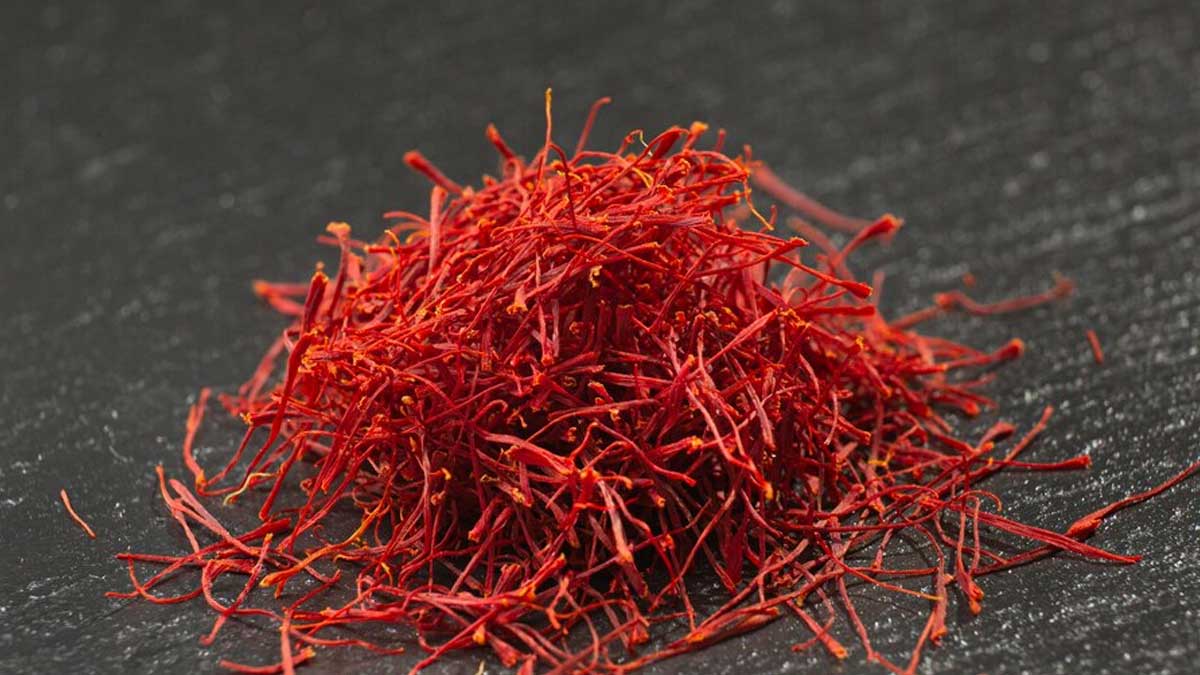
Saffron is a spice derived from the flower of Crocus sativus. It is known for being the world's most expensive spice and boasts of various potential health benefits. In India and many other countries, saffron, also known as kesar, is used in cooking, medicine, and for manufacturing purposes. Studies have claimed that it can prove advantageous for cardiovascular health, Alzheimer's disease, and many other chronic conditions like diabetes. Some studies also back its effectiveness in improving mood and reducing depressive symptoms.
Table of Content:-
However, it is important to note that some claims about saffron’s benefits are overstated or lack solid scientific backing. Below are five common misconceptions you should be cautious of.
Also Read: From Reducing Cancer Risk To Improving Memory: Health Benefits Of Saffron Or Kesar
Instantly Boosts Moods![]()
According to research published in the Avicenna Journal of Phytomedicine, saffron has the potential to enhance mood and reduce symptoms of depression. Studies have also found that saffron can reduce anxiety levels. However, remember that it is not a quick-fix solution and cannot improve mood instantly. The effects can take weeks to develop, and individual responses may vary.
Weight Loss Benefits
There have been studies that suggest saffron can help promote weight loss. A study published in the Journal of Cardiovascular and Thoracic Research showed that saffron supplements improved body composition and reduced appetite and dietary intake in people with coronary artery disease. However, it is crucial to note that more research is needed to back the claim. While some studies suggest it may help reduce appetite, its effectiveness for long-term weight loss is questionable.
Can Cure Diseases![]()
Saffron is said to help manage various health problems, from insomnia to menstrual cramps. WebMD notes that saffron may have several potential health benefits, such as improving mood, reducing inflammation, killing cancer cells, and acting as an antioxidant. While these properties are promising, the question remains: does saffron actually cure diseases? The answer isn't straightforward. Although some studies suggest saffron may support health and help manage symptoms of certain conditions, there is insufficient scientific evidence to confirm that it can cure diseases. Many of its possible benefits are still under research, and claims about its healing power often go beyond what current data supports.
Insomnia Treatment
Various studies have shown that saffron can improve sleep quality and reduce insomnia symptoms. A study published in the journal Nutrients investigated the effects of saffron on sleep quality in people with mild to moderate anxiety-related sleep disorders. Participants were given either a saffron extract or a placebo for six weeks. The results showed that saffron significantly improved sleep quality, duration, and ease of falling asleep, while the placebo had no effect. While the study seems promising, it is not enough to back saffron's use as insomnia treatment.
Fights Acne![]()
Another common misconception is that saffron can effectively fight and reduce acne. While saffron contains antioxidant and anti-inflammatory properties, which might benefit skin health, there is limited scientific evidence to prove its direct role in treating or preventing acne.
Acne is caused by a number of factors, including excess oil production, bacteria, and clogged pores, and while saffron might help soothe irritated skin or reduce redness, it is not a proven treatment for acne. Therefore, it is best to avoid overreliance on the spice for treating skin conditions.
Remember, before making a huge investment in saffron, it's crucial to weigh the potential benefits against the cost and the limited scientific evidence supporting many of its claims. It's often more practical and cost-effective to incorporate remedies that are actually scientifically backed to help you. Consulting a doctor may be the best way forward.
Also watch this video
Read Next
Paris Hilton Reveals ADHD As Her Superpower Behind Her Success; Is ADHD Related To Creativity?
How we keep this article up to date:
We work with experts and keep a close eye on the latest in health and wellness. Whenever there is a new research or helpful information, we update our articles with accurate and useful advice.
Current Version


